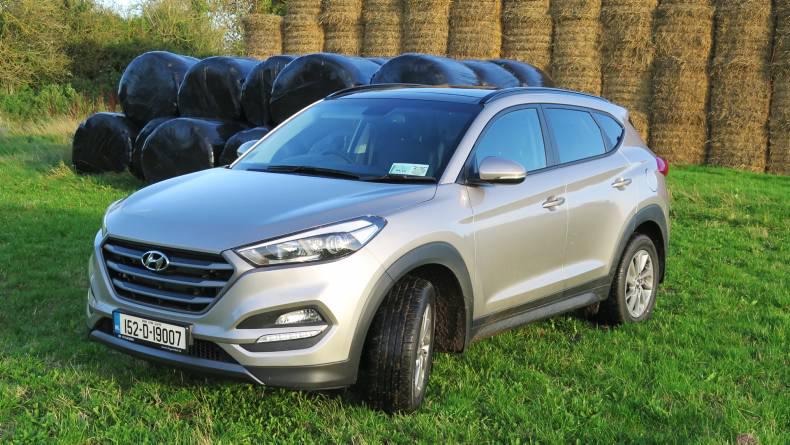At the end of July new car sales in Ireland are running 19% ahead of the same period last year, according to new statistics issued by the Society of the Irish Motor Industry (SIMI). The July new car sales are 8% ahead of last year’s figures with light van sales up by 15% and heavy truck sales jumping by a massive 37%.
So far this year there were 131,264 new cars sold and 29,931 of them were 162 registrations sold in the month of July. The Hyundai Tucson remains the top selling car for the year and for July followed by the Ford Focus and Volkswagen Golf, with the Nissan Qashqai and Skoda Octavia taking fourth and fifth place, respectively.
Roscommon continues to dominate the new car sales growth, with sales up by more than 31%, while Meath showed the next highest growth level at 29%, while Longford recorded the lowest growth in new car sales at just 11%.
Commenting on the figurers SIMI Director General Alan Nolan said “The motor industry performed strongly in the first half of 2016, with increased activity in both car and commercial vehicle sales. This growth has continued into July, although at a noticeably slower rate than the first two quarters, perhaps due to a combination of external factors such as Brexit and the fact that the extremely high growth rates of recent years must naturally slow as we get closer to a more normal market following a period of catch up.
It is important however for both the Industry and the Economy that, new vehicle sales continue to be at sustainable levels, which for new cars is in the region of 150,000 to 160,000, based on the current population and the age of the national car fleet. A new car market in the region of 150,000 delivers over €1Billion in tax revenues, supports the employment of more than 40,000 in the Motor Industry, and assists in reducing our CO2 emissions from transport by tens of thousands of tonnes.
In this context, we would encourage a Budget strategy focused on building consumer confidence and improving the business environment, particularly with all recent economic forecasts for Ireland anticipating lower growth rates than had been previously expected for the remainder of this year and for 2017”.
At the end of July new car sales in Ireland are running 19% ahead of the same period last year, according to new statistics issued by the Society of the Irish Motor Industry (SIMI). The July new car sales are 8% ahead of last year’s figures with light van sales up by 15% and heavy truck sales jumping by a massive 37%.
So far this year there were 131,264 new cars sold and 29,931 of them were 162 registrations sold in the month of July. The Hyundai Tucson remains the top selling car for the year and for July followed by the Ford Focus and Volkswagen Golf, with the Nissan Qashqai and Skoda Octavia taking fourth and fifth place, respectively.
Roscommon continues to dominate the new car sales growth, with sales up by more than 31%, while Meath showed the next highest growth level at 29%, while Longford recorded the lowest growth in new car sales at just 11%.
Commenting on the figurers SIMI Director General Alan Nolan said “The motor industry performed strongly in the first half of 2016, with increased activity in both car and commercial vehicle sales. This growth has continued into July, although at a noticeably slower rate than the first two quarters, perhaps due to a combination of external factors such as Brexit and the fact that the extremely high growth rates of recent years must naturally slow as we get closer to a more normal market following a period of catch up.
It is important however for both the Industry and the Economy that, new vehicle sales continue to be at sustainable levels, which for new cars is in the region of 150,000 to 160,000, based on the current population and the age of the national car fleet. A new car market in the region of 150,000 delivers over €1Billion in tax revenues, supports the employment of more than 40,000 in the Motor Industry, and assists in reducing our CO2 emissions from transport by tens of thousands of tonnes.
In this context, we would encourage a Budget strategy focused on building consumer confidence and improving the business environment, particularly with all recent economic forecasts for Ireland anticipating lower growth rates than had been previously expected for the remainder of this year and for 2017”.







 This is a subscriber-only article
This is a subscriber-only article










SHARING OPTIONS: